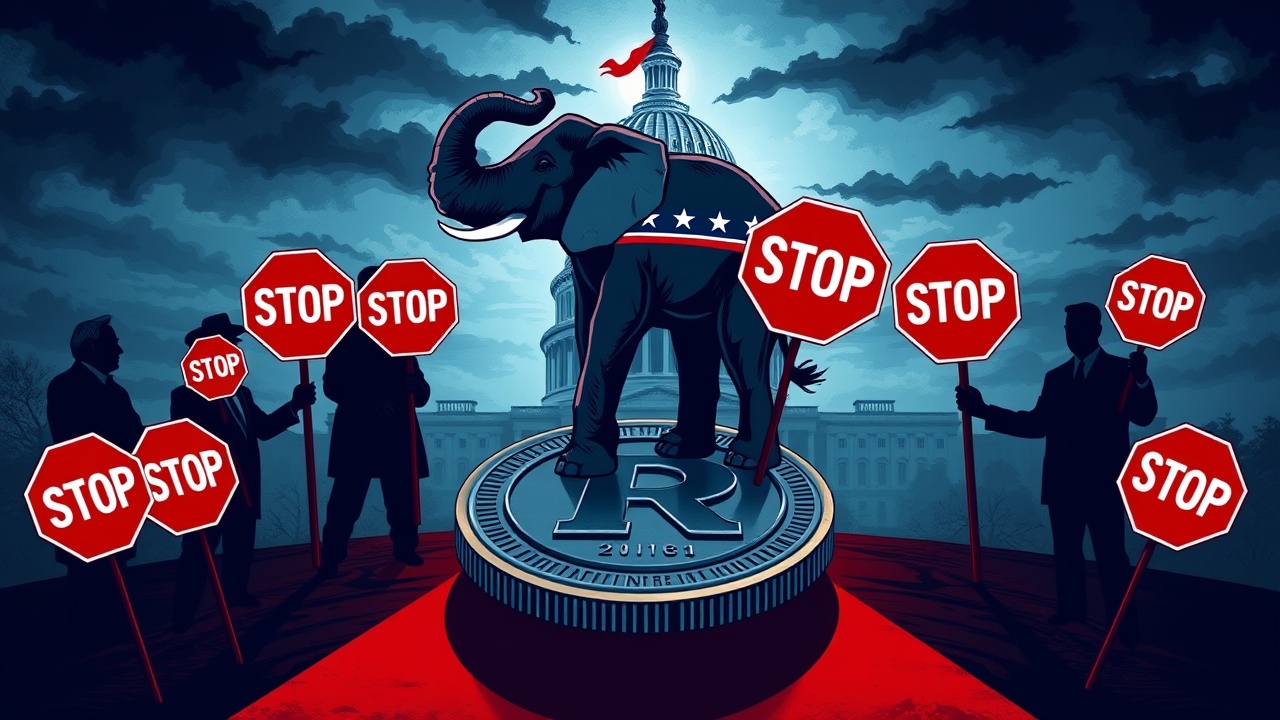Introduction
In a bold move, 20 Democratic senators have put forth a legislative proposal aimed at restricting the financial engagement of top government officials with cryptocurrencies, specifically targeting the current president. This initiative, referred to as the “Stop Cryptocurrency Corruption Act of 2025,” seeks to bar high-ranking officials—including the president, vice president, members of Congress, and others in Senate-confirmed positions—from participating in cryptocurrency activities. The proposed legislation surfaces amidst controversy surrounding the TRUMP coin, which has seen a surge in value following news of a special dinner hosted at the White House for its top investors.
Proposed Restrictions
The restrictions outlined in the bill would extend to particular special government employees, including prominent figures like Elon Musk, who currently serves on the Department of Government Efficiency (DOGE)—a name coincidentally linked to a popular cryptocurrency. Despite Musk’s involvement, he has stated that the department has no intentions of utilizing this cryptocurrency for governmental transactions.
The penalty for breaching the proposed regulations could result in fines or even imprisonment, with the restrictions lasting not only while the officials are in office but also for one year post-tenure. However, ordinary individuals would still have the freedom to buy and sell cryptocurrencies without interference.
Legislative Context
This Senate initiative closely mirrors a similar bill that was introduced in the House earlier this year, reflecting the ongoing debates over cryptocurrency regulations, particularly a looming Stablecoin bill. Certain Democratic senators have expressed frustration over Republican stances, perceiving a lack of willingness to negotiate essential components related to anti-money laundering measures and foreign issuer oversight.
Motivation Behind the Legislation
One of the central motivations behind this legislation is to prevent President Trump and Melania Trump from profiting from their memecoins, which were launched shortly before the presidential inauguration. The TRUMP coin’s value has been a cause for concern among Democrats, particularly following Trump’s announcement of exclusive events for its largest holders at the White House.
Senator Elissa Slotkin, a key proponent of the bill from Michigan, underlined the urgency of addressing this issue, stating:
“We have a more pressing crocodile coming up to the boat, and that is the president of the United States selling his own currency, advertising it, and using it as a means of payment to line his pockets,”
emphasizing that the implications of this financial game are far more alarming than the broader regulation of cryptocurrency.
Conclusion
This legislative push marks a significant stand by Senate Democrats seeking to safeguard ethical standards in government amid ongoing discussions about financial transparency in the era of digital currencies.




